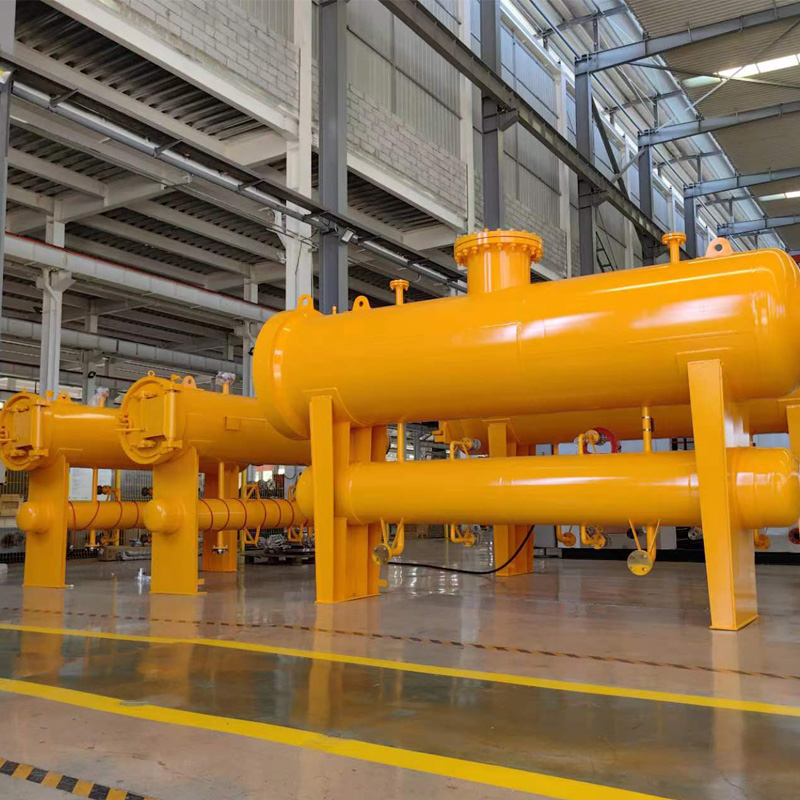
Dec . 07, 2024 13:39
Back to list
Natural Gas Filtration Solutions for Enhanced Efficiency and Environmental Safety
The Importance of Natural Gas Filters in the Energy Sector
Natural gas is one of the most significant energy sources in the world today. It is widely used for heating, electricity generation, and as a raw material for various industrial processes. As the global demand for cleaner energy sources continues to rise, natural gas is often viewed as a transitional fuel that can support the shift towards a more sustainable energy landscape. However, the efficient and safe utilization of natural gas requires effective filtration systems. Natural gas filters are crucial components in ensuring the purity of this energy source, protecting both infrastructure and end-users.
Understanding Natural Gas Filtration
Natural gas undergoes various filtration processes to remove impurities, including water, grit, and larger particulate matter, before reaching consumers. These impurities can originate from natural gas itself, as it is often harvested from underground reservoirs alongside sediment, moisture, and even harmful gases. Filters serve to eliminate these contaminants to prevent damage to pipeline infrastructure and ensure the quality of the gas supplied to consumers.
The filtration process may involve several stages, starting with coalescing filters designed to separate liquid water and other hydrocarbons from the gas. After initial filtration, additional filters are used to remove particulates and other small contaminants. Advanced systems may also incorporate activated carbon filters to capture odors and volatile organic compounds, ensuring the gas is safe and meets regulatory standards.
Types of Natural Gas Filters
There are various types of filters used in natural gas applications, each serving specific purposes
1. Coalescing Filters As mentioned, these filters are critical in removing both water and larger droplets of liquid hydrocarbons. By coalescing smaller water droplets into larger ones, these filters facilitate efficient removal from the gas stream.
2. Particulate Filters These filters are essential for trapping solid contaminants, such as dust and rust, which can originate from the pipeline infrastructure or gas production sites. Clean pipelines are crucial for maintaining overall system integrity and efficiency.
3. Activated Carbon Filters These filters are particularly important for removing odorants, typically added to natural gas for safety reasons. They help to capture any residual odors resulting from these additives to ensure a pleasant experience for users.
natural gas filter

4. Membrane Filters These are more advanced systems that utilize selective permeability to separate gases based on their molecular size. This type of filter can be particularly useful for specialized applications where high purity levels are essential.
Benefits of Natural Gas Filtering
The benefits of effective natural gas filtration extend beyond mere compliance with regulations. By ensuring the gas is free from contaminants, operators can minimize equipment wear and tear, leading to reduced maintenance costs and longer lifespans for infrastructure. A well-maintained filtration system also enhances the safety of gas distribution, decreasing the risk of explosions or leaks caused by particulate buildup or corrosion.
Moreover, the environmental implications of efficient filtering can be significant. By ensuring that the natural gas burnt in power plants and homes is of high purity, emissions related to incomplete combustion are reduced. This, in turn, contributes to lower greenhouse gas emissions, helping to combat climate change and improve air quality.
Future Trends in Natural Gas Filtration
As technology advances, the future of natural gas filtration is poised for innovations that will further enhance efficiency and effectiveness. Smart filters equipped with digital monitoring systems can provide real-time data on filter performance, allowing operators to respond proactively to potential issues. Additionally, the integration of nanotechnology promises the development of more efficient filtration materials that can capture even smaller contaminants.
Furthermore, as the energy landscape evolves, there may be an increased focus on developing filters that can handle biogas and other alternative gas sources, underscoring the importance of filtration in the transition towards renewable energy.
Conclusion
Natural gas filters play a pivotal role in ensuring the safe and efficient use of one of the world's most vital energy sources. Their importance is underscored by the growing need for cleaner energy solutions. As technological advancements continue to shape the energy sector, the evolution of natural gas filtration will remain integral in promoting safety, efficiency, and environmental responsibility.
Next:
Latest news
-
Safety Valve Spring-Loaded Design Overpressure ProtectionNewsJul.25,2025
-
Precision Voltage Regulator AC5 Accuracy Grade PerformanceNewsJul.25,2025
-
Natural Gas Pressure Regulating Skid Industrial Pipeline ApplicationsNewsJul.25,2025
-
Natural Gas Filter Stainless Steel Mesh Element DesignNewsJul.25,2025
-
Gas Pressure Regulator Valve Direct-Acting Spring-Loaded DesignNewsJul.25,2025
-
Decompression Equipment Multi-Stage Heat Exchange System DesignNewsJul.25,2025

